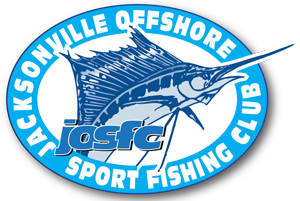In case you may not have seen the notice in the newspaper, I want to call everyone’s attention to a change in the boating-safety education requirements in Florida effective January 1, 2010. It states that boat operators who were born on or after January 1, 1988, are now required to pass an approved boating-safety course and have a photo identification and a boating-safety card in their possession on the water in order to operate any boat with a 10-horsepower motor or larger. So, if you plan to fish any of the future tournaments, or have a person within that age group operate your boat, you are responsible to make sure the operator has met the necessary legal requirements. You might say, it is like needing a driver’s license to operate a car.
To help satisfy this new requirement by the state of Florida, the Coast Guard Auxiliary will be offering a boating-safety program on Mondays from 6:45 pm to 9:15 pm at the Stellar Building, 2900 Hartley Road, in Mandarin. For additional information and cost of the program, contact Bob at 904-721-1346.
The club tournament schedule for this year will begin with the River Tournament March 27. Since all of our future tournaments will be offshore, we need to give a lot of thought to making sure our boat and equipment will perform satisfactorily and safely before heading out to our favorite spot offshore. We also need to have a plan to make sure that someone knows where to look for us, and what will happen, if our equipment fails us while offshore .
The first thing you need to do to make sure that your outing on the water begins and ends safely is to develop a float plan and leave it with your spouse, significant other, some other reliable person, or your marina. Ask the custodian of the plan to contact the Coast Guard or other local authority if you do not return by the indicated time on the plan.
A news article that appeared in the local paper headlined “High drama, high seas” told the story of a local boater on a 35-foot Viking and how a float plan and the proper equipment on board prevented a loss of life. The boater had filed a float plan, left it with his wife and was proceeding to his destination about 30 miles offshore when a fire broke out and destroyed the boat. Fortunately, the boater had not only filed a proper float plan, but had extra safety equipment on board such as an EPIRB, life raft, ditch bag and hand held radios.
After the crew abandoned the boat, continued to send a MAYDAY message, and the EPIRB was activated, the Coast Guard contacted the boater’s wife to verify certain facts. The wife advised the Coast Guard that if the EPIRB was on, the crew was in trouble. A boat that had seen the smoke came to check and advised the Coast Guard it would stand by until they arrived on scene as their boat was too small to take all the crew on board. Remember, if you have an EPIRB, make sure it is registered so there will be a contact person listed in case it is turned on in an emergency. There have been cases where an EPIRB was purchased, not registered and when activated was useless. The following statement by this boat captain is one all of us should follow: “If I tell my wife we’ll be in by 8:30, and we’re not in, and she hasn’t heard from me – don’t start worrying, start calling the Coast Guard.”
Hopefully, the above experience will remind all of us to file a float plan before we leave home for the launch ramp. The float plan should contain your name, address, phone number, name and description of your vessel, names of other persons on board, trip details including geographical location of your destination, the route you will take to get there, and/or GPS numbers if possible, time of return and time to call local authorities or Coast Guard if you do not return by the scheduled time. A properly executed float plan could be a lifesaver in an emergency if you have to abandon your vessel at sea, or break down, with no power for your radio to communicate your location and notify someone of your need for help.
The local Coast Guard station phone number is 904-564-7592. Make sure the person who has your float plan has this phone number, or put it on your float plan. A properly executed float plan would enable the person in custody of the float plan to initiate a timely search for you if you did not return by the time specified. Time could be a critical factor in saving your life in a real emergency. A sample float plan is available in the boating safety materials rack at the Mayport clubhouse.
File a float plan each time you go boating/fishing to help ensure your safety on the water. May you continue to enjoy safe boating throughout the year.
Top Ingram
Fish Tales

